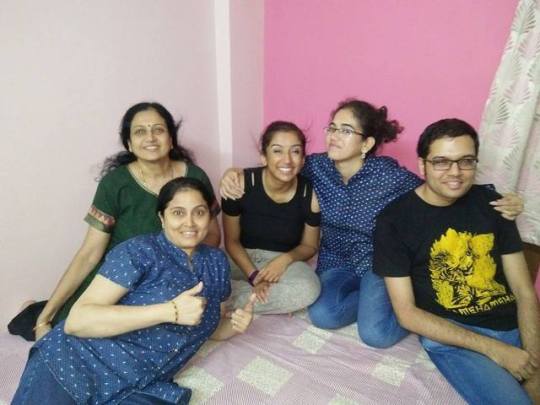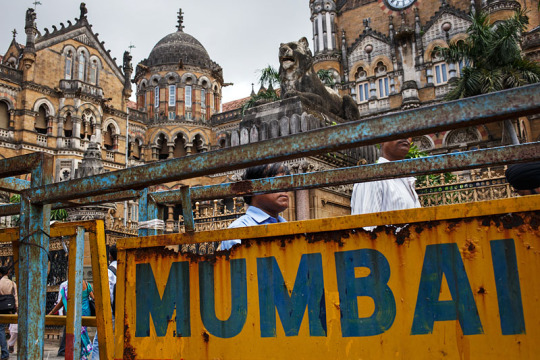Indian girl living in a Southern world - traveling back to India.
Don't wanna be here? Send us removal request.
Text
Postlude
Hey y’all! I thought it wouldn’t be fair to end my blog without a nice conclusion piece. I learned my trip may have come to an end, but my identity journey continues. According to Erik Erikson, identity work isn’t something that ever ends. At every stage of your life, you just endure another type of identity crisis until you kick the bucket. I’m straddling Stage 5 and 6. See the table below to find what stage you’re at:
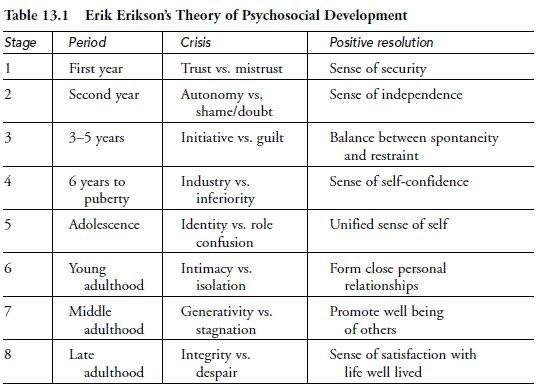
So I feel a little silly to think this one trip, these 4.5 weeks would some how help me reach any type of closure. I don’t think I gained any closure from this trip, but I did gain some clarity.
My big realizations:
1. Being Indian comes in different shades, and I am not any more or less Indian than any other Indian. So for me to tell my students that my culture has died inside of me, that was wrong. My culture didn’t die. I can never not be Indian. I can’t wipe away my Brown-ness with a moist toilette. However, I do admit I’ve been slacking on keeping up with my culture’s history and practices. And now, I am more eager to seek out other Brown people in the community and attend more Indian functions.
2. I am an American. More importantly I am an Indian-American. Not Native American. Indian-American. That’s a thing. We’re our own shade of Indian. It’s why I don’t have an accent or know how to make a perfect chapati. But it’s okay. Because you don’t have to have an accent or know how to make chapatis when you’re an Indian-American. It’s just not part of my unique metamorphosis of cultures. So screw anyone who tells me I’m a “foreigner” because I am blessed to have two places I can call home. It’s my alabamamasala.
3. If you’re going to be a friend of mine, you’ll have to put up with my Indianism and discussion about Indian oppression. From now on, I’m not hushing my Indianism to make my other friends feel more comfortable around me. Most importantly, I’m not going to be discreet about the oppression Indians of all shades face. I used to avoid race talks with certain White friends because I didn’t want to make them feel uncomfortable or guilty. I used to avoid talks about oppression with my Black friends to avoid the conversation from turning into an oppression Olympics type of thing. Oppression is oppression. No need to try to top someone on “who’s being more oppressed?” The conversation should always be “how are we going to stop this?” Solidarity is key. And the fact is I have melanin that I can’t hide, and people will always treat me a little differently and say ignorant, racist things to me because of that. And what’s worse, because our country’s race talks are so limited to Blacks vs. Whites, I will always be the “other” that gets neglected.
But that’s my fault for not using my voice when I had the chance, and I won’t let my voice be muted anymore in these race discussions.
—————————————–But on the flip side…
My trip to India was overall very humbling. I realized that I have so much privilege. More than I knew. I realized how much my mother sacrificed when she moved to the U.S. I realized how strong she had to be to rebuild her career, her friendships, her identity – all while single-handedly supporting a family in a country where we’d always be the “other.” But I realized even though the racism/discrimination that we face from all other racial groups is not fair, it is the price we must pay for a taste of freedom and independence.
I teach in a low-income community, but on this trip I saw what poverty really is. I saw 10 year olds selling random items, begging for money in the middle of traffic while other kids are running off to school. And I saw thousands of people desensitized to this injustice.
I am thankful that I was not raised in a society where poverty is so prevalent, so extreme, so hopeless that people are desensitized to it. So I realized being an American is a privilege that I take for granted at times. I complain about my lack of ability to tonguetwerk or speak my native language, but being able to speak English is a privilege. My English speaking ability, my slightly Southern accent, my citizenship, all have gotten me so far in this country. I will always be grateful for that.
Ultimately, this experience was the epitome of “bitter-sweet.” I grew bitter at the realization of how much discrimination I face daily from Black, White, and Indian people. At the same time I grew humble because my life could always be worse. The grass is never greener on the other side.
Maybe facing a little prejudice is a small price to pay for a larger sense of privilege…
Who knows?
A big thank you for everyone who has been keeping up with me and giving me words of encouragement to keep writing. Your support means the world to me!
1 note
·
View note
Text
RELAT(E)ionships
My time in India is coming to an end. I have met so many relatives for the first time while I’ve been here. My mother has 35 first cousins, and I have met at least 85% of them and their mothers and their children. I have even met my parents’ long lost friends from India. I met one relative the other day, and she was talking a lot about how she LOVES India because of all the relatives. All the love. All the warmth.
There’s definitely a strong sense of hospitality within Indian families. I have never been showered with so many gifts from people I am meeting for the first time. I expect it from my close relatives like the ones I share genes with. I don’t expect it from my distant relatives. Those of which I can’t pronounce their names and have no idea how we’re actually related.
I really do appreciate the gifts and kind gestures from my extended family, but if you really know me, you know I don’t care much for material gifts. I am a firm believer of “it’s the thought that counts.” In fact, when distant relatives buy me a gift, I feel like it’s their way of showing love without actually creating the bond - like a “get-out-of-building-a-relationship-with-you-free” card.
What I love more than any gift is when my aunt texts me about good books she’s been reading that reminded her of me. Or when my uncle calls to ask me about Teach for America because he wants to donate money to the cause because I’m a TFA corps member. Or when my cousin sends me silly Snapchats about alcohol with Shakira playing in the background because he knows Shakira and alcohol are my two favorite things. Little moments like that builds connection. Why? Because I can feel my relative isolating a part of me and trying to connect with that part. It shows that they do pay attention to who I am.They are taking the time and courage to relate and become vulnerable with me. These small acts put the RELATE back in RELAT(E)ives.
In Indian culture family is the most important thing in the world. I think Indians value family more than Americans. I say this because in India if you have a big family, you don’t need Social Security or pension or a retirement plan. You just move in with your kids once they start making money, and they take care of you until you kick the bucket. It’s perfectly normal and expected in Indian culture. So you see, family is quite valuable in Indian culture. No family = no place to live for free post retirement.
But there’s something missing. It’s almost as if the Indian mind thinks, “Oh, you’re my grandmother’s sister’s child’s child! We’re related! You’re very important to me. I’ll be at your wedding.” Boom. Just like that. Even though I have never met this person and know nothing about them.
And because of that type of reaction, I get vibes of insincerity. It’s the same feeling internationals get about people from the South. In Alabama, you’ll meet someone randomly at the bar or a conference, and became instant BFFs. Then right before you part ways, he/she will say, “It was so nice meeting you! We’ll have to do this again. See you soon!” And it’s probably more likely that you’ll never see that individual again. That’s the American thing to do. Totally normal. Totally insincere. Totally alabamamasala.
So on this journey I have met relatives and our conversations have gone like this:
Long Lost Relative: So you don’t speak Konkani? Ohhh… (disappointing tone).
Me: (Awkwardly standing there, doing that weird Indian head nod thing) Yah.
Long Lost Relative: So you’re a teacher? Ohhh… (disappointing tone again).
Me: (Awkwardly standing there, doing that weird Indian head nod thing) Yah.
Long Lost Relative: So you’re looking to get married?
Me: I don’t believe in marriage.
Long Lost Relative: *BOOM!* (explosion due to over disappointment. End of discussion.)
Ha, just kidding. Those last three lines never took place, but one could justifiably assume that’s the type of dialogue that would have taken place if anyone asked me about my stance on marriage.
Clearly these people know nothing about me and throw judgement before they grasp understanding. Now, I have met a few relatives and family friends that I have fallen in love with. Spunky, progressive, enlightening relatives. People I wish to have known before and will continue to keep in touch with.
But then I’ve also met people that I am definitely not related to, but I feel like we’ve been close friends for decades. For example, one of my favorite parts of my trip was spending time with my long lost Mumbai friends. Last time I was in India (almost 10 years ago), I got really close to a few kids that lived in my Granny’s apartment building. I literally have not spoken to them in years, but as soon as I returned to Mumbai, we reunited, and it felt like old times again. Even better than old times. Every conversation was so rich with discussions about politics, culture, economics, religion, everything and anything under the sun. The conversations were organic and easy and hours would just fly by. Good conversation is so difficult to find these days, and good people are even more difficult to find.
My relationship with my Mumbai friends felt much more authentic than those I have made with some of my relatives. Makes me wonder, do we use family (blood lineage) to excuse the relate aspect in the word “relatives?” Meaning, do we say, “Hey we’re genetically related so there’s no need to actually form a relationship with you! What more do you need than a common gene pool?”
Think about it, are you actually forming relationships with your brotherfathermotherdaughtersoncousinauntunclegrandparents the same way you form relationships with your friends?
I’ve learned distance isn’t always measured in miles or kilometers.
1 note
·
View note
Text
The RapeMeShirt
Disclaimer: I promise the title is more provocative than the actual post itself.
My whole life and especially during this trip, I’ve always found the male/female dynamic in society fascinating. I want to say I’m a feminist, but that term has been warped and manipulated to have so many connotations that I have to be careful how I say it otherwise people just stop listening to me. So I am “a person who believes in the social, political, and economic equality of the sexes.”
Sounds familiar, right?
That is Chimamanda Adichie’s dictionary definition of feminism from her We Should All be Feminists essay and also featured in Beyonce’s “Flawless” track. And that’s my type of feminist. Also, according to Roxanne Gay, I’d be considered “the bad feminist” which is basically just a woman who is living her dreams and doing what ever the fuck she wants to do and not shaming other women in the process. Also me, most of the time. And there’s nothing bad about being a “bad feminist.” Read the book.
For most of you reading this, you’re probably like “womp, womp, womp…I know this already.” But I’m hoping someone is reading this and is like “Oh, I never knew. I’m enlightened. I’m a feminist too!” Because while society is evolving, some days I feel like I have a big scarlet “A” on my forehead. Particularly on this journey.
So now that I’ve given you a vocabulary lesson, let’s get to the juicy stuff. If you want to study feminism or gender dynamics, Indian culture is a great place to start. I think India gave birth to feminism. Just check out Buzzfeed’s “11 Incredible Women From Indian History Who Should Be Your Role Models:”
1. Kittur Chennamma – led an armed rebellion against the East India Company.
2. Vijaya Lakshmi Pandit – the first woman (and first Indian) president of the United Nations General Assembly.
3. Savitribai Phule – started India’s first school for girls.
4. Kamaladevi Chattopadhyay – social activist and Indian freedom fighter.
5. Captain Prem Mathur – the first woman pilot in India.
6. Sarojini Naidu – the “Nightingale of India.”
7. Sucheta Kriplani, the first woman Chief Minister in India.
8. Asima Chatterjee – the first Indian woman to receive the Doctorate of Science from an Indian university.
9. Justice Anna Chandy – the first female judge in India, and the first woman in India to become a High Court judge.
10. Captain Lakshmi Sahgal – Indian independence revolutionary.
11. Rani Lakshmibai – led rebellion against the British.
Every other woman is a rebel! Like, France had Joan of Arc, but we had multiple Joans. This list doesn’t even include Indira Gandhi, first female prime minister of India. Honestly, she’s nothing compared to some of these ladies.
So after doing a little research on Indian Women’s history, I thought, well damn, Indian men must worship the ground women walk on. They worship female gods so why not mortal females themselves.
Not the case at all. Rape is the fourth most common crime against women in India. According to the National Crime Records Bureau 2013 annual report, 24,923 rape cases were reported across India in 2012. Out of these, 24,470 were committed by someone known to the victim (98% of the cases).
And I’ve done a grand job of making India seem like this 3rd world, bobo country. It’s definitely far from that. Rape stats in the U.S. are quite alarming, but that’s for a different blog. I just assumed in a country where women hold political and religious power, this wouldn’t be as large of an issue.
And what’s even more messed up is I’ve heard of women who were raped, and the perpetrator said things like “you were asking for it” because of the clothes she was wearing or because of the job she had. I didn’t know my clothes could say “Hey dude! Come here and rape me!” Apparently ladies, the RapeMeShirts are 50% off at your local H&M and 100% visible to men everywhere.
I’ve had plenty of guy friends look at girls and judge her by the way she’s dressed and been like, “Oh yeah, she’s asking for it.” And my response is “What language are you speaking because she’s not saying anything. She’s just standing there.”
So subconsciously women are aware that men hear these weird invisible voices that say “Hey! Go undress that woman with your eyes and make her feel super uncomfortable. Yeah, she wants it!” So women start responding proactively by doing the following:
1. Dressing conservatively - no showing legs, chest, shoulders, belly or anything too fitting. Like I’ll awkwardly wear scarves with v-neck shirts to avoid looking too busty.
2. Don’t smile or be friendly toward men - You’re asking for it if you do!
3. Slut shame the women who break rule #1 or 2 - Because women are also conditioned to believe a woman is “asking for it” by the way she dresses (i.e. wearing the RapeMeShirt). Now, the RapeMeShirt goes from being a metaphor to being reality. It’s a full on clothing line at Body Central.
I slut shame. I’m trying consciously to stop. But I’ve realized it’s a product of hanging around too many guys who think girls are asking for something by the way they dress or walk or talk.
BUT THIS IS WHAT GRINDS MY GEARS: Men can run shirtless or swim shirtless and it’s all good. Women, you wear just a sports bra to the gym…BOOM, RapeMeShirt. You’re a loose lady. Men, stare like they’ve never seen boobs before. And yes, I stare at dudes too, but I quickly look away before I get caught staring out of respect for the dude so he doesn’t feel violated. But apparently, guys don’t feel violated. They just get their egos fed.
So in a nutshell, in India (and probably the rest of the world) women do certain things to avoid men from doing certain BAD things to women. The certain actions women take include: dressing a certain way, not walking alone at night, not taking a rickshaw at night alone, not living in a slightly sketchy part of town, carrying pepper spray, being mindful of her drink at parties, not being too nice, not being too mean, not having too many guy friends, etc.
Apparently all these things can suggest something to guys that girls have no intention of suggesting. Who knew. And we do these things, not as a precaution to avoid getting mugged, but to avoid getting assaulted. Boys, you’re biologically equipped with a piping hot gun in your pants, and girls, all we got is MAN-made pepper spray. The irony.
And of course, this doesn’t apply to all guys, but many. Rape culture is so alive in this world. I was on a train traveling through southern India. And I felt someone tickling my feet in my sleep. I woke up. Some dude was tickling me and watching me sleep. WHAT THE FUCK. I wasn’t even wearing a RapeMeShirt. I was wearing a normal t-shirt. Athletic capris. No make-up. Drool hanging out my mouth. Creepy. But that was just 1 out of 100 guys creepily watching me on that train. And I get paranoid. And scared. And I don’t deserve that. No woman does.
So fellas, rule of thumb. If she wants you, she’ll say “I want you.” If she doesn’t verbally say that, she doesn’t want you.
Stop listening to the invisible voices. And if you’re going to rip off a piece of clothing, let it be the metaphorical RapeMeShirt so women can be liberated to be women
sans fear.
0 notes
Photo

"Culture does not make people. People make culture." - Chimamanda Ngozi Adichie Casually wedding crashing in Bangalore.
0 notes
Note
Oh man. #culturalappropriation
You post things like "brown girls are beautiful" and "reclaim the bindi". Brown girls are beautiful... But why is it ok for you to say that yet if I said "white girls are beautiful" I would surely be called racist. "Reclaim the bindi". White girls are constantly hated on for wearing bindis but I don't get it. If white people said people of another race weren't allowed to wear something , all he'll would break loose. And why get mad over people admiring a beautiful part of Indian culture? Jw...
haha is this a joke? why you so 2008? it’s not my job to educate you
53 notes
·
View notes
Photo
Perfect.

Parvati Patil with her bengal tiger patronus 🐯💥
40K notes
·
View notes
Photo
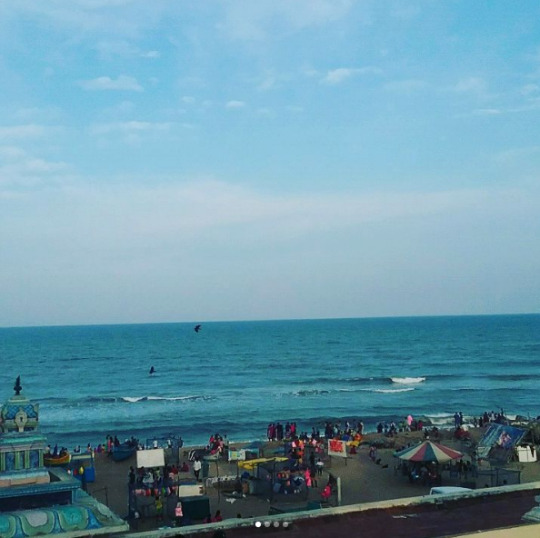
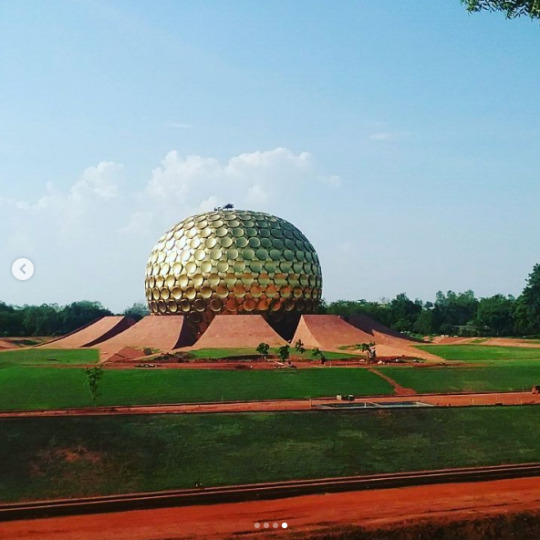
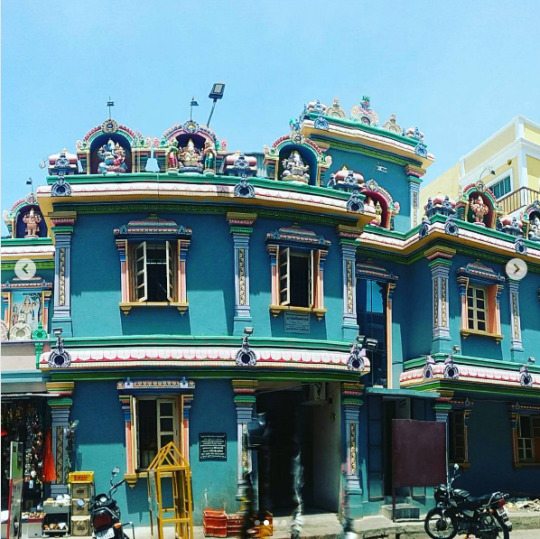
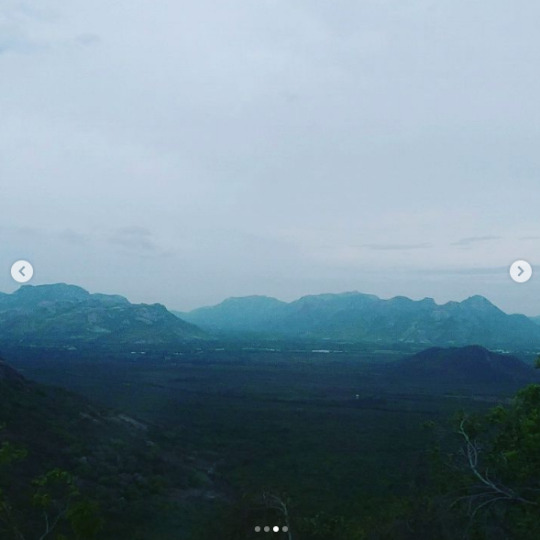
Lots of Temple hopping! Woo!!
4 notes
·
View notes
Text
The looseHindu
Yesterday I made a pilgrimage. Yes, a literal Hindu pilgrimage. It was quite the experience and a true testament to my faith. I went to the Tirumala Venkateswara Temple in a city in India called Tirupati. It is one of the largest Hindu temples in the world, and it sits on top of the Tirumala Hills. The view is absolutely breath taking, and it’s one of those places where elephants, monkeys, and humans all coexist in harmony.
According to the temple’s website “Lord Sri Venkateswara, also known as a form of Lord Vishnu, made Tirumala his abode five thousand years ago. (In Hinduism you have three gods that are responsible for the creation, maintenance, and destruction of the Universe. Those gods are Brahma [creator], Vishnu [maintenance], and Shiva [destroyer].) Since then, many devotees have continued to construct grand entrances on the ramparts of the temple over generations. The temple complex is spread over 16.2 acres of land.”
Basically, this temple was home of one of the most important gods in all of Hinduism. This temple is equivalent to the Vatican for Catholics or Mecca for Muslims. It’s a pretty holy place. People travel from all over to climb up a 7 mile hill to wait in a 5 hour line to pray to God for literally 5 seconds, if you’re lucky.
That’s devotion. Apparently.
Well, apparently, I am not that devoted. I did not climb up a 7 mile hill. I drove. I did not wait in a 5 hour line. I paid 300 rupees to skip everyone and waited 2 hours. At the end, I did get my 5 seconds with the Big Guy himself. Just long enough to pray that I don���t get crushed by the herds of people trying to also get their 5 seconds of prayer time. Oh yeah, I forgot to mention the crowd. The 2 hour line I was in is not a normal line. It’s actually barely a line. It’s thousands of people packed in between two barricades pushing and shoving to the prayer spot. The entire time people are pushing and shoving. It’s like Walmart on Black Friday times 100. I saw some of the non-Hinduest Hindus in this line. Just rude. I guess people will do anything to be with God, right? Wrong? Who knows?
While I waited in this line, I got a lot of self-reflection done. My first reflection question was
“What the fuck?”
My second reflection question was
“Maybe this is a test from God? A test to prove my faithfulness?”
My third reflection question was
“Why the fuck would God want me to waste time in this long-ass, crowded line with these rude-ass people when I could be feeding the poor or building homes for the homeless or teaching underprivileged children…???”
That’s when it really hit me. The difference between faith and being a Hindu. I have faith, but I am not a Hindu. (My mother is reading this and just died a little on the inside. Sorry Mom.) Or maybe I am a new variation of Hinduism. I am the looseHindu.
I pray all the time like a good Hindu even though I don’t know any Hindu prayers. I pray when my students are getting on my last nerves. I pray every time the Saints are playing football (because Lord knows, we need all the prayers.). In Nashville, I try to go to the Ganesh Temple every Sunday. I do 4 things at this temple.
1. I pray for my mom and my brother.
2. I pray for my students.
3. I pray for my friends especially those going through tough times.
4. I give gratitude. Lots of thanks for my health, my wealth, and the loving people around me.
I don’t like to pray for myself. I only pray for myself if I am suffering an illness or having a mental break down. I feel like when people start praying for themselves or for material goods, you might as well be talking to Santa. I basically pray for the people in my inner circle because if they are happy, then I am happy. And at the end of the day, if I was praying for myself, I’d pray for happiness.
But I do a lot of non-Hindu things too. I curse, I drink, I wear “provocative” clothing, I make inappropriate jokes…the “sinful” list goes on. And I am never apologetic for it. My theory is as long as you are not hurting yourself or others, God is looking down and saying, “live your dreams.”
But I do have faith that there is something up there - God/Allah/Jesus/the Vortex/Superior Being/Invisible Hand/The Big (Wo)Man Upstairs - something. I know this because the few times I have prayed for myself, my prayers were always answered. When I was in 8th grade, I wrote a letter to God, asking for the courage to kill it at my high school dance company auditions. And I did kill it. And I made the company. A few days ago, I prayed for cooler weather and the mental/emotional strength to get me through this pilgrimage. And guess what? One of the hottest cities in India was so cool, you could wear a sweater at night, and I made it through my pilgrimage without bitch slapping anyone.
Faith.
But then I thought, do I really have faith in this Divine Being or do I have faith in myself? Because at the end of the day, I don’t know if something really lives in the Heavens, but I do know I am the only person I can always count on to persevere through tough times. In a way, I am my own Vishnu (maintenance) and my own Shiva (destroyer). I can get myself over any obstacle, but I can also self-destruct in any given second. Every situation is all about your mindset.
So I have faith. Faith in God or faith in myself. Or a perfect balance in both.
Now, some less looseHindus or more religious people may be reading this and thinking that I’m crazy for being so loose. But this is what I’ve seen from people of all religions:
- I’ve seen Hindus say ugly things about Christians and Muslims (especially Muslims).
- I’ve had a Muslim tell me he wouldn’t date me because I was a Hindu.
- I’ve had multiple Christians tell me I am going to Hell because I am a Hindu.
I don’t know Vishnu, Muhammad, or Jesus personally, but I don’t think discrimination in any form is something they taught. Compassion. Love. Understanding. Now, those sound like more familiar teachings.
I say all this because I asked my mom, “Mom, if God is everywhere why are people making such a fuss to come pray at this temple? Why do the rich people get to skip everyone in the prayer line? Aren’t we all equals in God’s eyes?”
My mom’s answer: “It’s blind faith.”
That set off so many red flags. As a historian, I have learned blind faith causes one to be more vulnerable to political manipulation. It has led to abyssianswar,jihadistmovements,buddhistuprisings,thesevenyearswar,thecrusades,thethirtyyearswar,thereformation,thecounterreformation,muslimgenocideinindia,hindugenocideinpakistan,imperialconquestsoftheamericas,israelpalestineconflict,battleofkashgar,yugoslavwars,thefrenchwarsofreligion, and so forth. If it’s in the name of God, people will do anything! Even being totally evil. The dark irony of religion.
So in my mind and historically speaking, blind faith = greater likelihood to hate/discriminate someone with a different faith because you’re so devoted to your own faith.
Which is fucked up, and it is not a very Hindu/Christian/Muslim/Jewish/Buddhist/[insert religion here] thing to do.
How about this notion: open faith = loving everybody despite of their differences?
What harm could a little open faith lead to?
I’d choose open faith over blind faith any day. Even if it means that society will always see me as the looseHindu.
2 notes
·
View notes
Text
Foreigner or the foreign in her?
I have been slacking on the blogging, but for good reason. The past few days I’ve felt like either Mumbai has been rejecting me or I’ve been rejecting Mumbai.
I have to keep telling myself these feelings are very normal. I learned about this emotional turbulence when I was studying abroad in France. It’s called the Cultural Adjustment Curve Theory. Check out the image below:
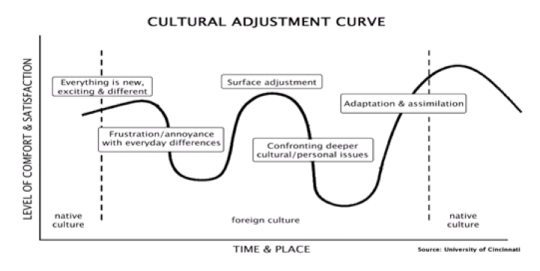
The first week I was here, I literally fell in love with the city. I was considering even moving here after one more year in Nashville. I would apply to teach at the American School of Bombay where I would teach World History and English. I would live in a very unaffordable flat in Bandra. On the weekends, I would teach American dance classes and spend time with relatives. And of course, my childhood Indian boy crush and I would fall in love and go for long walks on Bandra Promenade seawalk in our free time. Ah, the good life. According to the Cultural Adjustment Curve, I was experiencing Phase I - honeymoon phase, everything is new, exciting, and different. I was on that cultural high.
Then comes Week Two. The crash. I noticed I was crashing because I began sleeping in, skipping the gym and skipping meals. I was getting sick of the heat, the spicy food, and the heat. This is Phase 2 - frustration/annoyance with everyday differences.
I kept telling myself, “this is just a phase, shake it off, you’re only here for 5 weeks. Enjoy every moment.” So I became proactive. I told my relatives I wanted to see the sites, learn the history, explore the street side eateries. I took my aunt out for lunch one day and the next day we went to the museum. I reached Phase 3 - surface adjustment.
Apparently at the Prince of Wales Museum of Western India, tickets for Indians are 60 rupees. If you are a foreigner, you must pay 500 rupees. It’s not that big of a deal if you’re a foreigner (American or European) to pay 500 rupees for a ticket because 500 rupees is almost 8 bucks. So I understand why the museum has different prices for different nationals.
My uncle bought our tickets. 6 Indian museum tickets for 60 rupees each, mine was included in that 6 because last time I checked I was born in Mumbai, with a Mumbai birth certificate, and with pure Indian blood running through my veins. Right? Wrong. As we were going through the security line, the security lady asked me in Hindi, “where’s your ticket?” I knew what she was asking, but I didn’t know how exactly to respond. If I attempted to speak Hindi, she’d know I’m American. If I spoke English, she’d definitely know I’m American. So what did I do? I gave her my typical doe-eyed look and pointed to my uncle who was holding the tickets.
Guess what? She knew I was not Indian. She asked my aunt, “Indian hai?” My aunt responded, “Oh she’s definitely Indian. She just has red hair.” And we quickly shuffled off to the museum before the lady could question us further.
Oh but that lady was not going to let me go so easily. She walkie-talkied the other security guards, and told them, “Get that girl! She’s a foreigner!”
FOREIGNER?! In the country I was born in?! I’ve always been the foreigner…but I’ve always lived in the United States. This was ridiculous. Clearly I am Indian. I was born in Mumbai! Even if I was not born in Mumbai, I am STILL Indian. According to the museum, I am not Indian. I am a foreigner. If I am a foreigner in my birth country and foreigner in my home country, then where am I a native? According to the Cultural Adjustment Curve, I have reached Phase 4 - confronting deeper cultural/personal issues.
This has been the struggle I’ve faced all my life. It’s why I don’t have many close friends. It’s why I rather be the lone-wolf. It’s why I don’t get in serious relationships. No matter who I’m with, I’d be sacrificing a piece of myself to be with that person. Constantly assimilating and shape-shifting like some exotic creature.
But my encounter with the museum security illustrates my frustration with Indian people at large. Some (most) Indian people, whether they are Indian-American or Indian-Indian, have this warped mentality on Indianism. You must be a certain degree of Indian (well-versed in the language, culture AND religion) in order to be considered truly Indian. Otherwise, you’re not Indian at all. It’s total bullshit and totally elitist.
In the world of social justice, we call this type of struggle between my type of Brown and their type of Brown internalized racism. Internalized racism can get really sticky and complicated. Donna Bivens, internalized racism guru, makes a great point about internalized racism: “Internalized racism negatively impacts people of color intra-culturally and cross-culturally. Because race is a social and political construct that comes out of particular histories of domination and exploitation between Peoples, people of colors’ internalized racism often leads to great conflict among and between them as other concepts of power—such as ethnicity, culture, nationality and class—are collapsed in misunderstanding.”
So there we have it, folks. Me. Them. The Prince of Wales Museum (renamed Chhatrapati Shivaji Maharaj Vastu Sangrahalaya to dismantle the White Supremacy).
Me, attempting to revitalize my ethnic roots by going to the museum.
Them, trying to assert their patriotism by making Me (the foreigner) pay the foreigner ticket price. Stickin’ it to the colonizer!
Me, angry at Them for not understanding that Indianism comes in different shades and hating Them for not accepting Me as one of Them…boom, internalized racism.
UGH. So frustrating. My uncle paid the full price, and we had a great time at the museum. Later that day, I got severe food poisoning. The projectile type. The type that explodes from all orifices of your body. My body was physically rejecting Mumbai…or at least Mumbai cuisine. Apparently, internalized racism had reached my digestive system.
The evil security lady is gone. The food poisoning is gone. But this question still haunts me:
If I am a foreigner in my birth country and foreigner in my home country, then where am I a native?
She’s a foreigner if you only see the foreign in her.
2 notes
·
View notes
Photo



Aussie hair spray and a hair tie has saved my life on this journey.
2 notes
·
View notes
Text
Tonguetwerking
Before I left for Mumbai, I asked my mom what should I do while I am in India. She said, “learn some Hindi.” Her tone was more like, “learn some fucking Hindi, child.”
For those who know me, you know language is a sensitive topic. When I first came to the States I did not know a single word of English. Preschool was a nightmare, and my evil teacher had no ELL training. I cried most days and my mom would have to rush over and console me. Kids never played with me. My only friend was this other little Latino boy who also did not speak English. I’m not sure how we communicated with each other, but it proves you do not need a shared language to convey compassion.
Anywho, by the time I was six I refused to speak my native language, Konkani. Over time, Konkani was pushed farther and farther away from my life. Along with my love for Hindi movies, masala dosa, and gulab jamoon, Konkani was packed up and stored away in the deep, dark hollows of my mind. Thus, young, isolated Little Yams innocently began to ethnically cleanse her soul of all things Indian. By age 7, I assimilated into a sweet tea drinkin’, mud ridin’, fried chicken lovin’ Dixie gal.
Fast forward to the future when I became enlightened of the atrocity I had self-inflicted. I went through a phase when I thought maybe if I learned French I could compensate for my lack of foreign-ness. Ya, that was some stupid logic, but I do enjoy speaking French. It glides off your tongue and presses through your lips like squeezing Velveeta out of the silver package. Unfortunately, for me, speaking any Indian language is no Velveeta.
Unlike French, Indian languages aren’t exactly smooth. Like everything in Indian culture from Bollywood songs to rickshaw rides, Indian languages have a bounce to them. This bounce is equivalent to Big Freedia’s bootie twerking skills. The more I listen carefully to people speak in India, the more I think, they are tongue twerking!! And listening to me speak Hindi or Konkani is like watching a drunk white girl twerk. Awkward and uncomfortable. But you gotta hand it to that girl, she will not stop twerking until the music is over and the club has shut down. Persistence.
So let me channel my inner twerking white girl and persevere past this language barrier.
To all my foreign friends raising kids in America, do not let them ever forget their native tongue twerking skills.
Eat, pray, and tonguetwerk
y’all.
2 notes
·
View notes
Video
tumblr
A rickshaw drive that is equivalent to my dating life.
1 note
·
View note
Text
Heatdelirium
Dear Lord,
This heat gone kill me. Hotter than the Devil’s breath down here. Seriously y’all. This HEAT. Worse than any Alabama summer I’ve eva felt. Day 2 in India is always the hardest. Jet lag + heat + new diet + HEAT = pissy, delirious Yams.
It’s 87 degrees but feels like 101 according to Google! What in the world! Humidity is like 200% all day, err day. It’s absolutely pointless to straighten my hair or to put on makeup. Almost pointless taking a shower because I start sweating as soon as I begin to towel off. This heat ain’t no joke.
Air conditioning = privilege.
Now, I’m about to show my privilege. Yes, we ALL have some sort of privilege. According to Roxanne Gay’s Bad Feminist: “To have privilege in one or more areas does not mean you are wholly privileged. Surrendering to the acceptance of privilege is difficult, but it is really all that is expected... the acknowledgment of my privilege is not a denial of the ways I have been and am marginalized, the ways I have suffered.”
If you are leisurely reading this blog, you have some sort of technology and you have privilege. So just own it, and move on. And let me show you my privilege...
There are THREE very crucial elements of my life that are NOT readily available in Mumbai. Things I have clearly taken for granted:
1. Water -- must be boiled before you can drink it. Can’t drink out of the tap.
2. Wi-Fi -- must have some special code no matter where you go.
3. Starbucks -- non-existent (as of now).
Privilege. I’m Brown. I’m a female. I encounter racist, sexist assholes all day, errday. But I got privilege that my fellow Browns do not have here. Moral of the story: do like Kendrick Lamar and be humble.
Moving on. Here are some general observations I’ve made thus far:
Observation #1: Every day out and about in the city is literally a near death experience. Pedestrians do not have the right of way. Drive where ever you see space on the road. Don’t believe me? See video for better understanding.
Observation #2: Traffic is a jungle. Red lights are just a suggestion. People are more likely to go on red and stop on green. You’re supposed to drive on the left side of the road, but people drive where ever there is space for your vehicle. And the most important part of the car is the horn. Not the brakes. Not the steering wheel. The horn.
Mumbai traffic logic is very similar to my dating logic (or lack of). I pursue guys despite of red signals. Stop pursuing guys when there is nothing but green signals. And when things get hectic, I get loud instead of braking or steering away from the fuck boy. Eh, but we all continue to live in the end and life goes on.
Observation #3: People look hella stressed here. Like New York + Paris people stressed. Constantly on the go. No time for small talk or smiles. I smile at people, and they look at me like I’m a prostitute. “No sir, my smile was not a sexual proposition. I’m just trying not to be a bitch.” The not smiling thing makes no sense to me. It’s the Alabama part of my alabamamasala.
But to be honest, it makes sense why one would be stressed here. 24-hour traffic. 101 degree heat. And no readily available Starbucks or water. And professionals work crazy hours similar to service industry hours. My cousin works from 10am to midnight, and no, he’s not a bartender. He’s a data analyst! #humanrightsviolation Just kidding. Not kidding. Who knows.
I’m fading and the heat from my laptop is melting my creativity.
To all those chugging water right now or enjoying Starbucks while you soak up that Wi-Fi in a full air conditioned building, be aware, that is privilege.
Don’t judge me for typo-s or grammatical errors.
Eat, Pray, Thug
y’all.
3 notes
·
View notes
Text
Prelude
Hey y’all! If you’re reading and keeping up with this blog, then I should probably be very upfront about the purpose of this space. I am one of those types of people that live like a hobo because I am constantly putting money aside for big travels. I love traveling. It’s my true passion. Every time I get on a plane whether it is for domestic travels or international, I always learn more about myself by learning more about other people from different places. I also love traveling because when your flights get cancelled, delayed, or they’re just really long flights, you have ample opportunity to reflect. Reflection is the key to my success. This is not some Teach for America bullshit I’m throwing at ya. I truly believe people should take at least 20 minutes a day to unpack everything that happened that day. To me everyday is a journey, and at the end of every journey, you must unpack. Otherwise, you’ll have stinky baggage…I meant that literally and figuratively.
Therefore, in order to make sure I am reflecting on this epic journey back to the motherland, I have created alabamamasala. This concept started in my classroom last quarter. I was teaching the kiddos about the Age of Exploration and colonialism, and we spent the entire quarter chipping away at this essential question: “How are cultures born and how do they die?” It was a segue into a deeper lesson on racism, internalized racism, micro-aggression, etc. Ya know, just an average 7th grade Social Studies classroom.
The kids were like, “Ms. Bhat that’s an easy question. Cultures die because of colonization, war, disease, racism, natural disasters, etc.” These kids think they are so smart. Then I proposed this question as a counter argument: “Well, what’s my story? I was born in India. My family came to America willingly. I am not a victim of war, colonization, or any type of displacement. I was never forced to stop practicing my religion or my culture. BUT here I am, more Alabamian than Indian. If I had a baby, I would not be able to teach my baby how to be Indian and my culture would die with me. ”
My kids just looked at me puzzled and sad. They did not have an answer. To be honest, I did not really have an answer either. The unit’s focus shifted from “the causes of the death of cultures” to “knowing your roots.” We came to the conclusion that outsiders can kill off a culture, but the individual can be just as guilty of killing his/her culture too. When you forget or neglect your culture, you become your own colonizer in a way. Creepy…(Of course, this is a product of systematic oppression and internalized racism but nonetheless, still creepy.)
It was cool to see my students explore their identities. I had kids running up to me saying “Ms. Bhat! I found out I’m light skinned because I have some Dutch in me!” or “Ms.Bhat! My skin is actually this dark because both sets of my grandparents are from the Carribean!” The best was, “Ms Bhat, I’m light skinned and people keep calling me Black. But I’m not just Black and I’m not even just White. I don’t even know what I am, but I know I got a lot of different cultures in my roots.” That was the same girl that came to me on the last day of the school, and told me that was her favorite Social Studies lesson. She told me she never knew how to communicate her cultural identity until that lesson. To help a kid find confidence in his/her cultural background is literally the BEST part of my job.
The point of the lesson was to teach my kids, “Ay, we all got different roots. Different stories. Different flavors. There ain’t nothing wrong with that. Our differences is the masala to our souls – that special spicy kick!”
However, it’s weird to preach that lesson to your kiddos, but not practice it yourself. Teaching my students to delve into their roots really got me thinking about me and my roots and why I am so Southern. How did I become this way? Why did I abandon my Indianism for so long. Why do I avoid Brown people like the plague? Literally, I’d rather hangout in a group full of White people or all Black people or a group full of OTHER Asian people. BUT WHY? It’s a challenge for me to find community among my own people. And that’s kind of fucked up.
So the purpose of this blog is to reflect on my cultural identity, find inner peace, and work on loving/owning my alabamamasala.
DISCLAIMER: I may tend to get very philosophical in this blog. Borderline cheesy/cliche/very Elizabeth Gilbert from Eat, Pray, Love. In fact, I know I’m going to be channeling my inner Elizabeth Gilbert because I’m currently reading another one of her books. Typos and grammatical mistakes will happen and will happen frequently. Do not judge. Remember, I am E.S.L. (English as a Second Language). Plus, its not like I’m the POTUS or anything… “cofveve.”
We are all allowed human error.
2 notes
·
View notes
